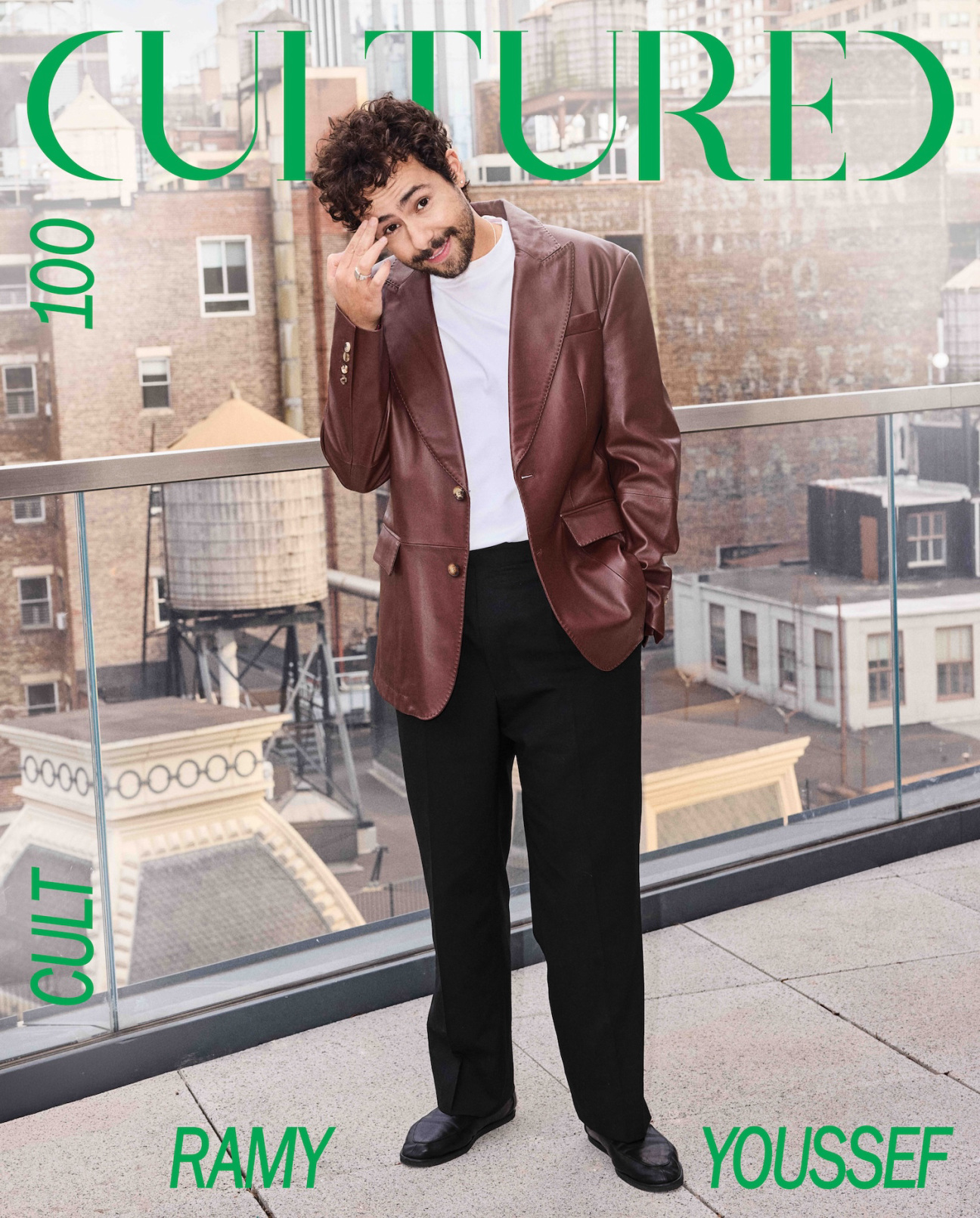
CULTURED’s second annual CULT100 issue spotlights 100 names across five generations who are shaping our culture in real time. Some members of the list are household names; others have been working behind the scenes to make possible the encounters that stop us in our tracks. They are all thinking big, sharing generously, and embodying courage. We hope their work makes you a little braver, too. Order your copy of the CULT100 issue here.
Ayo Edebiri can’t pinpoint the exact moment she met Ramy Youssef. “I don’t remember the days before we knew each other,” she tells the CULT100 cover star.
The pair of comedians both hit their strides in Christopher Storer-directed series—Youssef in 2019 on his show Ramy, where Storer tapped in on six early episodes, and Edebiri with Storer’s The Bear in 2022, where Youssef returned the favor by directing a second season episode. “So you admit to being a gossip?” Edebiri jabs when Youssef recalls that it was Storer who began bringing her name up in conversation around that time. “It was positive gossip,” he quips.
All that chatter has amounted to a stacked slate of jobs for each. These days, Youssef is in Utah shooting Succession mastermind Jesse Armstrong’s film Mountainhead about a group of billionaires weathering a financial crisis. He’s also fresh off the release of his animated show, #1 Happy Family USA, about a Muslim-American family navigating a post-9/11 U.S. Edebiri, for her part, is back in Chicago filming The Bear’s fourth season.
Both have spent their careers opening their personal lives up for comedic—or emotional—relief in projects that probe sexuality, religion, and race, deftly switching between writing, directing, producing, and acting even as they continue to establish their names in each category. In times like these, it’s good to have a friend in the industry, even if the pair admittedly spend much of their time together running errands—“We gotta go to CVS!”—or crashing on each other’s couches. For Youssef, when it came time to sit down for his CULT100 cover story, there wasn’t really anyone else to detangle the craft with. Of course, Edebiri, who reportedly sends Youssef a good morning “Salam Alaikum” text daily, was all too ready for his call.
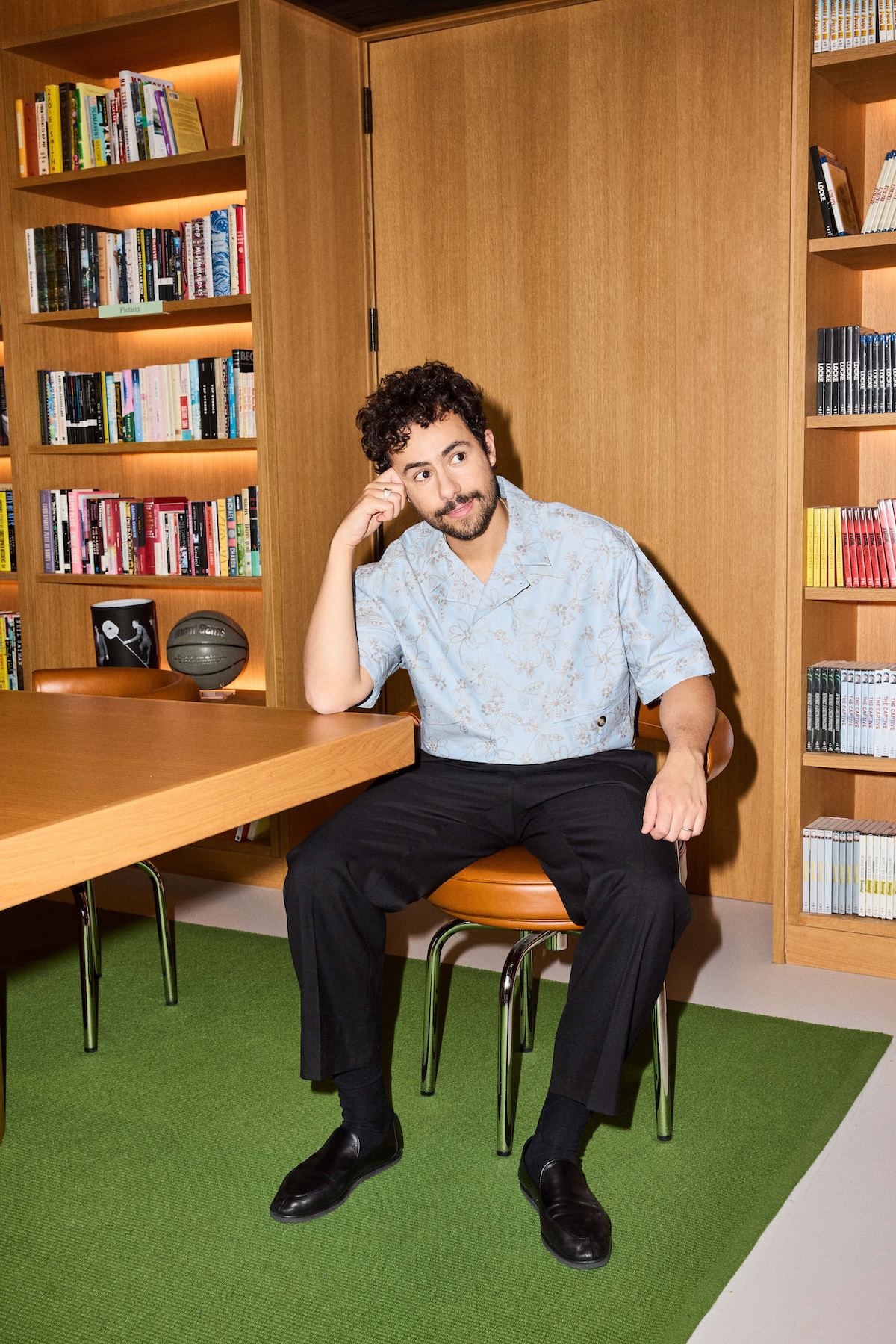
Ayo Edebiri: Ramy, did you have a dream last night?
Ramy Youssef: I had a really strange dream. I was with my wife and we could only get around by canoe. I started surfing the canoe, and she was like, “Dude, do you not realize I’m also in this canoe?” I got back in, but then she started surfing the canoe. She was like, “It looked really fun.” Eventually, we got to the mini-mall parking lot where we lived. Then my alarm woke me up so that I could call you.
Edebiri: Wow. Are you having stranger dreams in Utah?
Youssef: I think it’s the altitude.
Edebiri: Salt Lake City is so bizarre. It’s so flat. You can tell that they blew up a mountain to make a town. I could see a version of my life where I was born and raised there. I would be a missionary.
Youssef: You have the earnestness, you have the drive. You would attract a lot of followers.
Edebiri: Are you enjoying being on location?
Youssef: It’s cool because you get to hang with the cast more. Usually, I’m shooting in New York and everyone just goes on with their lives. But in Utah it’s like, “Well, we could go to Whole Foods and then maybe hang?”
Edebiri: You’re starting to simulate what it would be like to be a normal human being. I’m always hanging out at the grocery store. It’s like the number-one thing to do when you’re on location. Are you enjoying being just an actor?
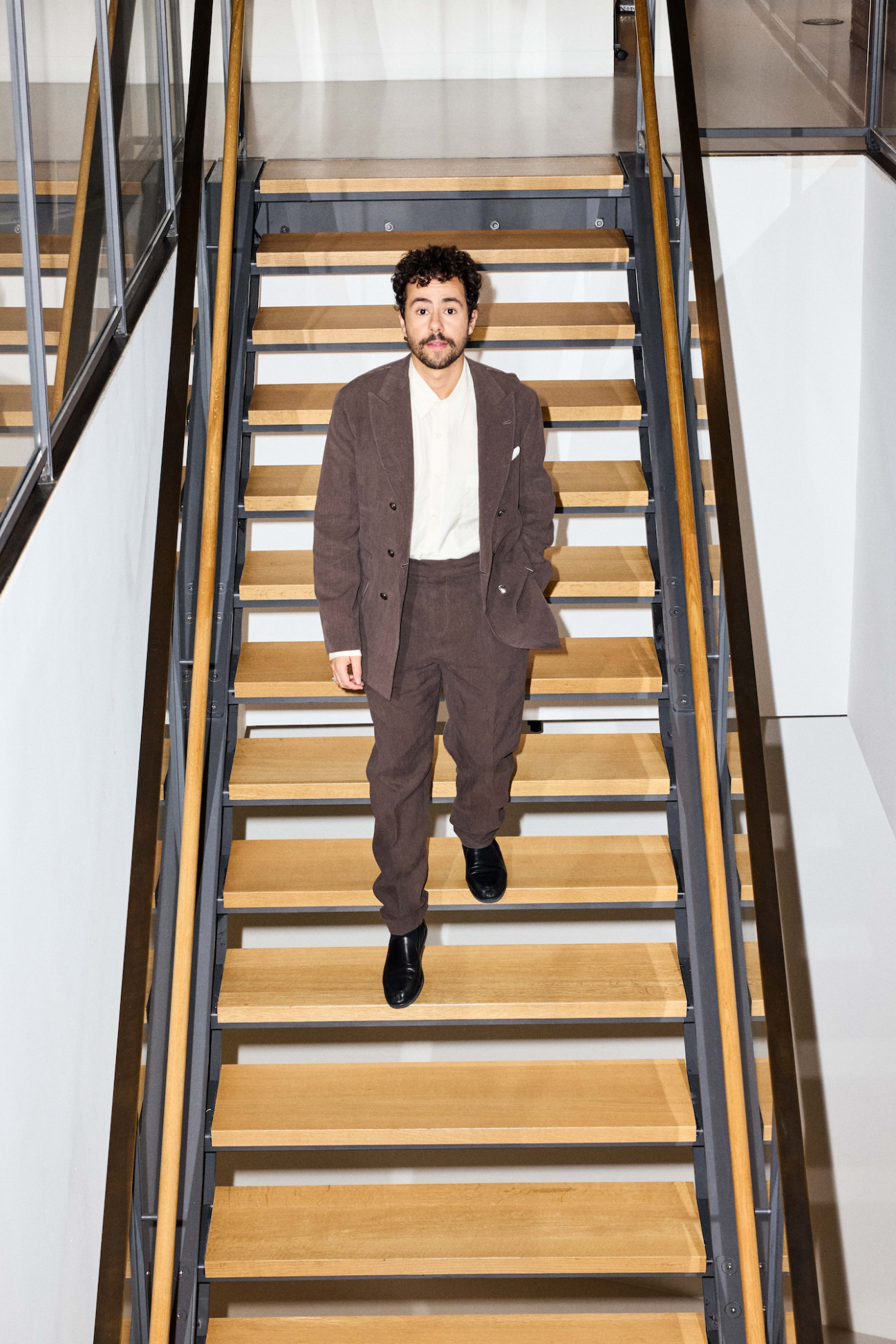
Youssef: I’m used to getting there way before call, making lots of decisions, ensuring the set is right. There’s something cushy about just walking in and remembering that all the decisions have been made by someone brilliant. Working with Jesse Armstrong is really cool because this the first thing he’s directed, but he’s so locked-in and confident in what he wants. Between when I got the script and when I got here, it was less than a week. The script is thick dialogue. I don’t know if you remember watching Succession—but you kind of don’t understand half of what they’re saying because it’s so business-speaky. Here, there’s a similar sensation. We’re in this finance tech world and all these words are so big.
Edebiri: I remember watching movies and TV shows when I was younger and being like, Whoa, TV writing’s so crazy. Then you find yourself in those spaces and you realize that those people really talk like that. It’s like, I thought that this was just Woody Allen, but now I’m at my Jewish friend’s house in Rochester and it’s actually how his family talks.
“The great lesson of life is that sometimes it’s exactly like ‘Entourage’ and there’s nothing you can do about it.” —Ayo Edebiri
Youssef: I watched so much Entourage as a teenager. Then I got to LA, and Hollywood’s kind of like Entourage.
Edebiri: The great lesson of life is that sometimes it’s exactly like Entourage and there’s nothing you can do about it.
Youssef: Is it fun jumping into this season of The Bear where you know the character so well?
Edebiri: Each season I’ve gotten to do different things. Last season I directed for the first time and this season I’ve written an episode. It’s been a minute since I’ve written for TV, and I’ve learned so much since the last time—even something as simple as knowing what it’s like to shoot an overnight. So, my episode will be taking place during the day.
Youssef: You said you directed one and you wrote one, but you kind of skipped the part where you were in one that I directed in season two which obviously was very affecting for you as a performer.
Edebiri: Yeah, that’s probably the experience that has shaped me the most as an actor. There’s one scene where you directed me and I thought, Whoa. Felt different after.
Youssef: A transformative scene. You’re welcome.
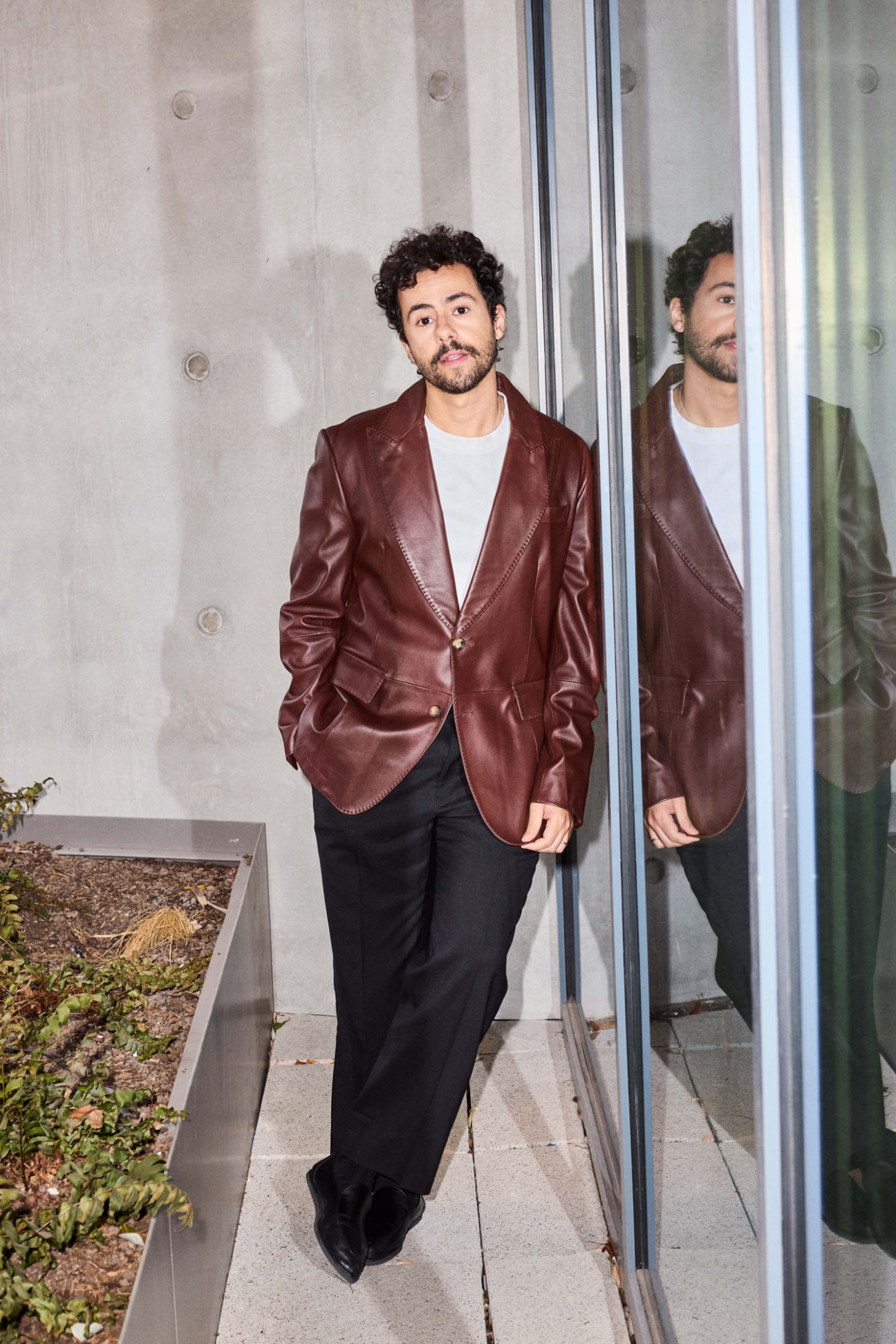
Edebiri: Do you think about directing when you’re acting?
Youssef: This is why it’s so cool to work with someone like Jesse and obviously someone like Yorgos [Lanthimos, director of Poor Things]. You walk into their playground and you signed up for it because you love what they do. So no, I don’t think about it at all. It’s just about understanding different roles and ways of supporting. I try to put myself in a position where I’m down to just move in service of whatever they need. There is something about really digging into the process of making [a project] and having fun doing it. That can be more satisfying than releasing the thing itself.
Edebiri: The making is, at least 97 percent of the time, more fun than the release. There’s this quote from Sarah Paulson that I’m gonna bastardize, but I think about it a lot. She’s like, there’s three different versions of a project: the version you read when you’re by yourself, the version that you make in the room with everybody else, and the version everybody else gets. The second one is the most important. When you’re an actor that has to be true, because if you’re more concerned with what you read or your vision for the result, you’re doing a disservice to the act of collaboration.
Youssef: You have to be genuinely present for it to translate effectively. Steve Carell’s in this film I’m working on. This guy is a pro, and he’s asking questions and being curious—it’s almost like we’re all doing it for the first time together. [He]’s not like, Oh, I got this. He’s like, I’m gonna give myself the freedom to investigate it and prepare for it without any judgment. Watching Steve Carell look like an excited kid makes me think of that phrase “first time, every time.” You go, Fuck, I want that.
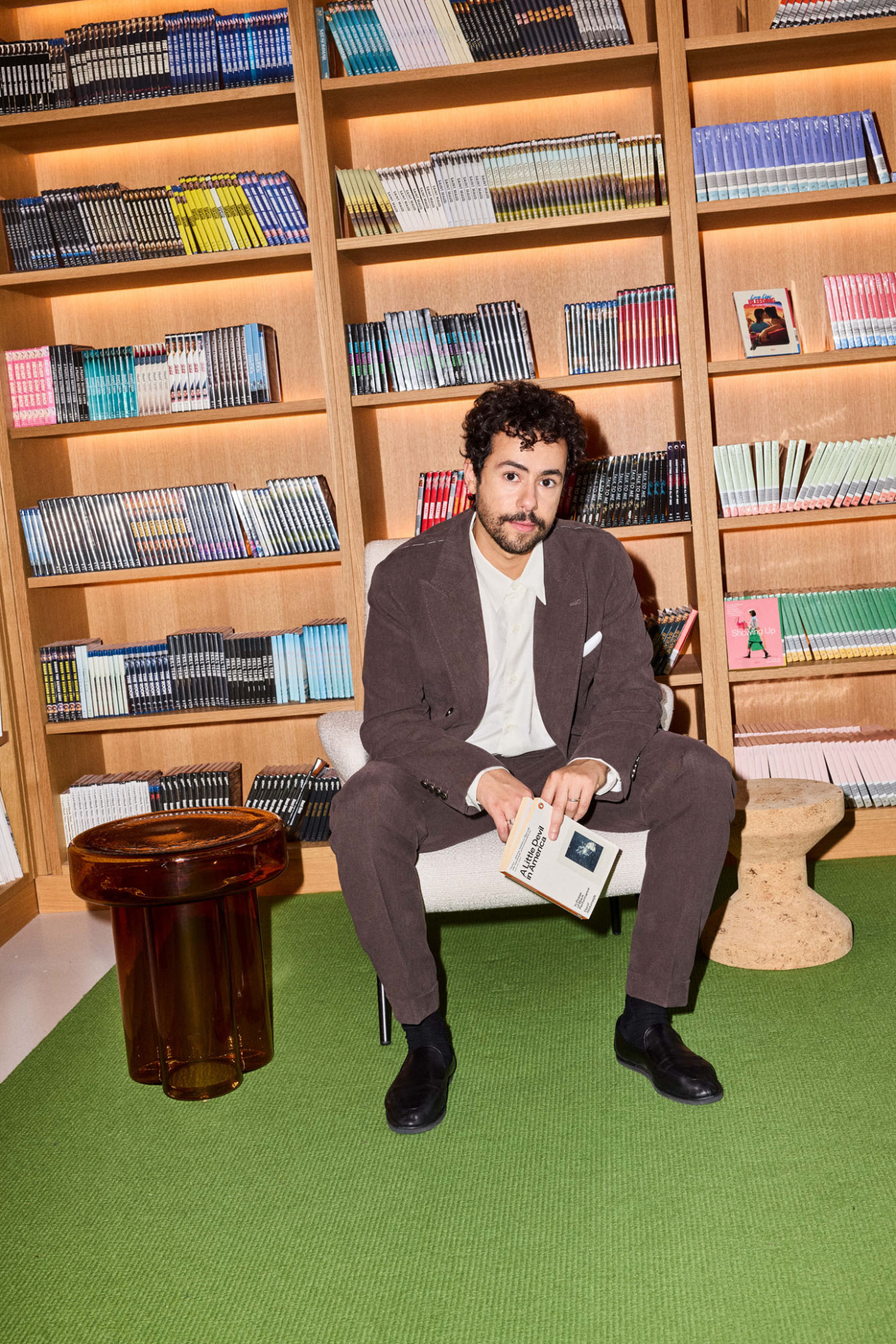
Edebiri: I never want to feel settled. I want to be content, but I always want to be searching a little bit. My parents had jobs that weren’t their passions, so to be in a position where we also get to pursue our passions makes me want to be as excited about it for as long as possible and not get jaded in a business where that happens quickly. You have to protect an innocence for yourself.
Youssef: I have this feeling of, like, Oh, this is just the beginning. I’m still figuring all this out, still expanding into it. There are so many twists and turns that could happen. What you’re describing is the fuel for that, right?
“Watching Steve Carell look like an excited kid makes me think of that phrase ‘first time, every time.’ You go, Fuck, I want that.” —Ramy Youssef
Edebiri: I hope so! If we remain curious and excited. I think that’s what separates people who have a sense of humor from those who don’t. I’m not sure where it comes from—being traumatized as a youth or what—but you say, Fuck it, am I gonna laugh my way through this? Find something that connects me to other people? Since you’re already suffering, might as well try.
Youssef: If you ever see me and I don’t seem curious and excited, you’re allowed to beat me up if you want to.
Edebiri: That’s nice to have in print. If you ever see me not looking curious and excited, you can just do a soft check-in.
Youssef: I keep getting pictures of your magazine covers next to mine.
Edebiri: We’ve come so far. I wish I could be like, “Remember when I used to sleep in your guest bedroom [and now we’re both on magazine racks]?” But I still do. I have some dates to ask you about later, I’m not gonna lie.
THE CULT100 QUESTIONNAIRE
What keeps you up at night?
Usually, its something I’m trying to figure out in a script. Sometimes I’ll think of a joke in the middle of the night, but it’s always bad.
What’s one book, work of art, or film that got you through an important moment of your life?
Probably a mix of the Harry Potter books and the Autobiography of Malcolm X. They actually have a lot of crossover.
Who do you call the most?
My mom, without a doubt. Even though she’ll tell you that I don’t call, she’s my number one.
If you could attribute your success to a single quality of yours, what would it be?
It would have to be my Egyptian work ethic. We just work. We don’t sleep.
Hair by Andrea Grande-Capone
Makeup by Stephanie Wise

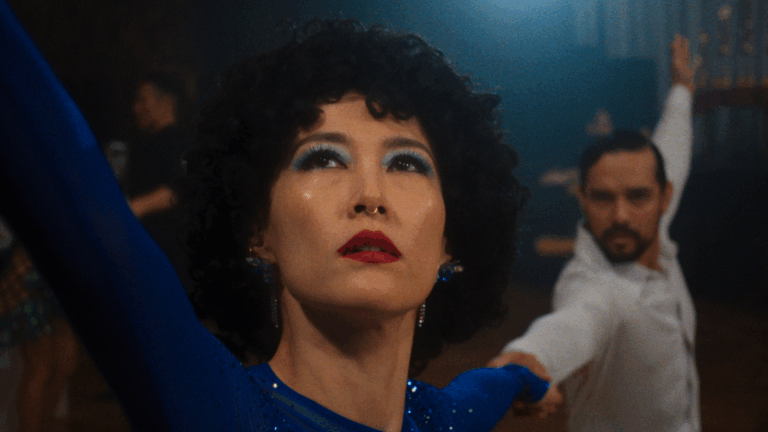
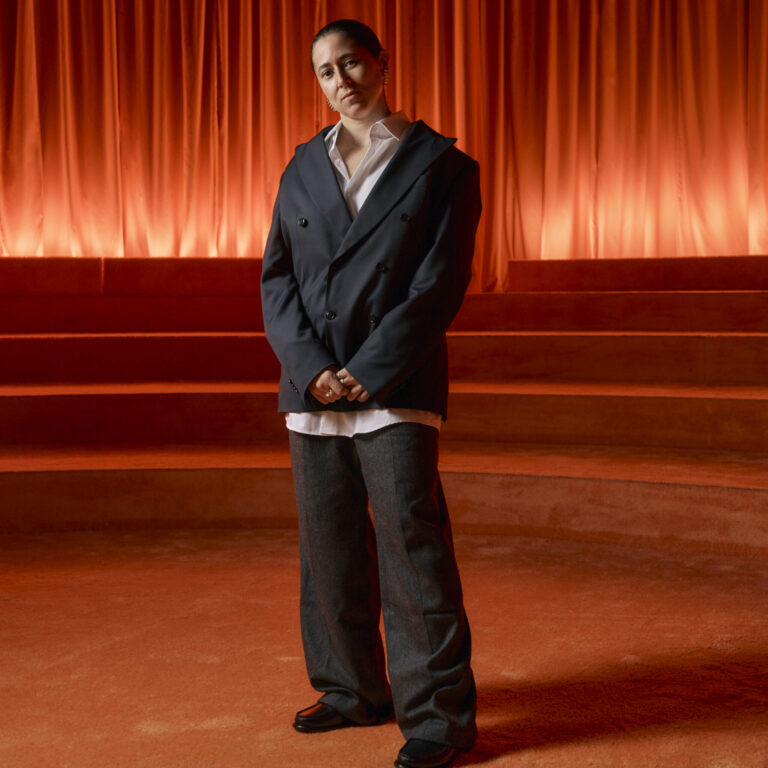
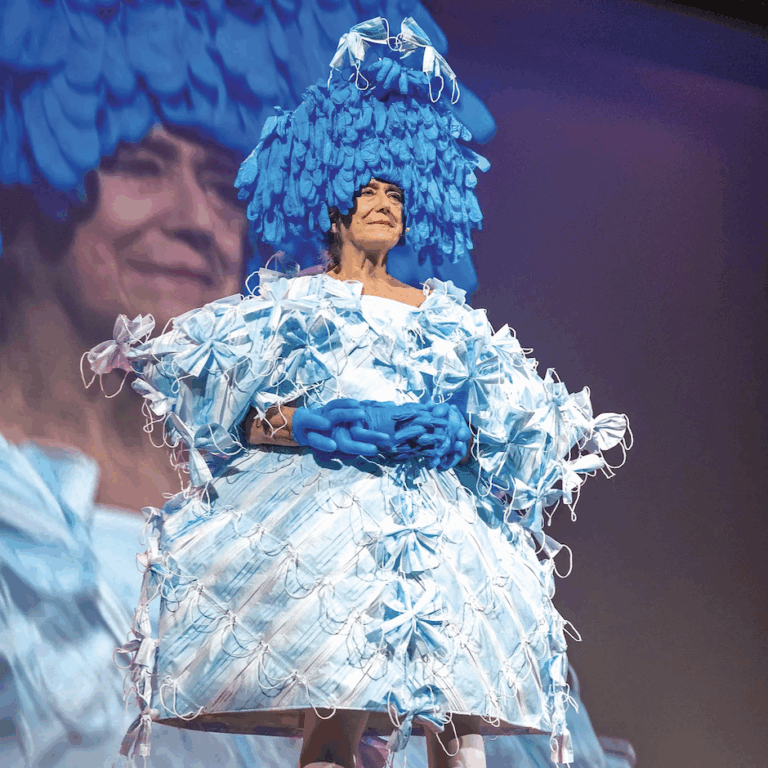
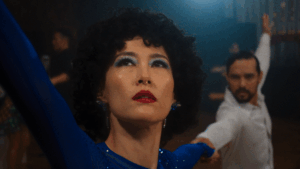
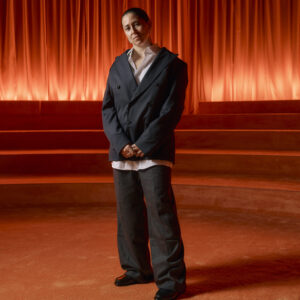
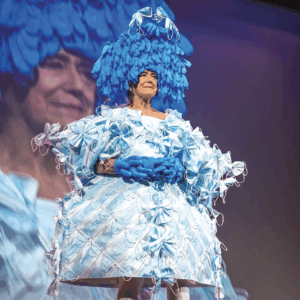



 in your life?
in your life?

